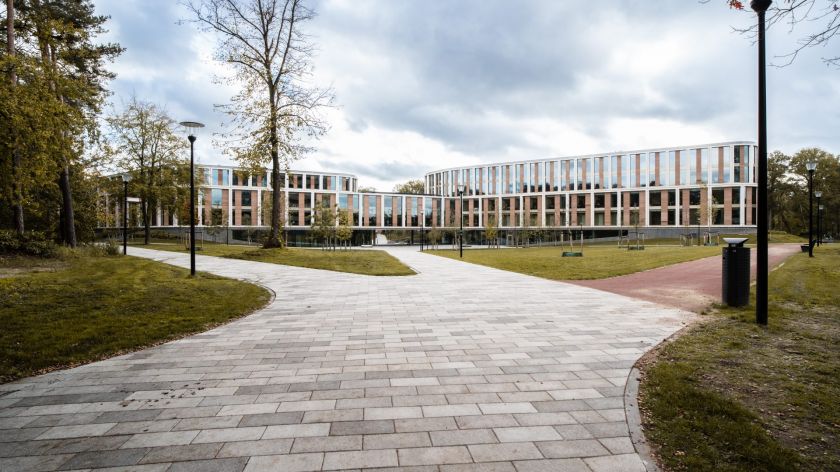German enrolment number at Radboud University drops drastically
-
 Maria Montessorigebouw. Foto: Johannes Fiebig
Maria Montessorigebouw. Foto: Johannes Fiebig
German students have been a staple demographic at Radboud, but student numbers of this academic year show a sharp decline in German student enrolment. Part of the reason might be a new psychotherapy law in Germany. ‘The change of the law in Germany is not something that we can control.’
For the first time in over ten years, enrolment numbers at Radboud have taken a small hit. Forty-five students less than last academic year chose Radboud as their alma mater. A development that should not come as too big of a shock to the university, which has increased its overall student numbers by more than 30 per cent over the past ten years.
What might come as a bigger shock, however, are the numbers of German first-year students joining the university this year. In comparison to last year, 36,7 per cent less German first-years decided to enrol at Radboud. That number is largely attributed to a decline in German first-year enrolments in the Psychology bachelor, which saw a minus of 43,5 per cent in German first-year enrolments.
Psychotherapy law
The possible culprit for the flight of Germans? According to the Radboud October figures report, referencing an earlier Vox article, most of the decline in German enrolment numbers can likely be attributed to a change in the German psychotherapy law: the Psychology bachelor at Radboud will possibly not enable German students to become psychotherapists in Germany. Additionally, Psychology programme director Rob Holland explains, financial constraints and the housing shortage for international students could also play a role in why less German students have opted for a bachelor in Nijmegen.
‘Psychology can offer much more than the basis for becoming a psychotherapist’
‘We have always valued and we still very much value the German students within our programme’, states Holland in a written statement. ‘However, the change of the law in Germany is not something that we can control.’ Furthermore, while the German first-year enrolment in psychology has plummeted, enrolment from other countries of the European Economic Area (EEA) saw an increase of 55,6 per cent in the English psychology track – something that can also be good for the study, Holland: ‘In terms of diversity, it is valuable to have students with different backgrounds and nationalities because it can bring different perspectives on theory and research in psychology.’
Addressing the issue
Regarding the change in the new psychotherapy law, however, the department at Radboud has been in contact with other Dutch universities close to the German border. Internally, the faculty is discussing the issue – and possible solutions – with German staff members who have close contacts to the mental healthcare field in Germany. ‘We also inform prospective students about the many different jobs you can do as a psychologist’, according to Holland. ‘Psychology can offer much more than the basis for becoming a psychotherapist.’
But fixing the issues related to becoming a psychotherapist in Germany is difficult for the faculty. Mainly, explains Hollands, because what the changes mean is not totally clear yet – for both Dutch and German universities. ‘What we definitely want to prevent is that students come into our bachelor’s programme with false expectations. Currently, we cannot adjust our programme to changes in German Psychotherapy. If there are easy ways out, then we might do this, but we cannot promise anything.’
At least for now, German chatter will continue to ring through the halls of the Maria Montessori building: despite the rapid decline, Germans remain the largest foreign student population at Radboud – and in psychology.



